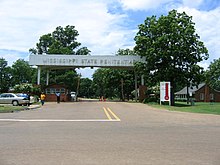
John Ray Grisham Jr. is an American novelist, lawyer, and former member of the Mississippi House of Representatives, known for his best-selling legal thrillers. According to the American Academy of Achievement, Grisham has written 37 consecutive number-one fiction bestsellers, and his books have sold 300 million copies worldwide. Along with Tom Clancy and J. K. Rowling, Grisham is one of only three authors to have sold two million copies on the first printing.
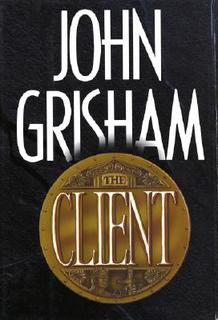
The Client (1993) is a legal thriller written by American author John Grisham, set mostly in Memphis, Tennessee, and New Orleans, Louisiana. It is Grisham's fourth novel.
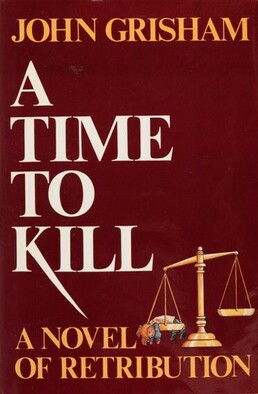
A Time to Kill is a 1989 legal thriller and debut novel by American author John Grisham. The novel was rejected by many publishers before Wynwood Press eventually gave it a 5,000-copy printing. When Doubleday published The Firm, Wynwood released a trade paperback of A Time to Kill, which became a bestseller. Dell published the mass market paperback months after the success of The Firm, bringing Grisham to widespread popularity among readers. Doubleday eventually took over the contract for A Time to Kill and released a special hardcover edition.

The Firm is a 1991 legal thriller by American writer John Grisham. It was his second book and the first that gained wide popularity. In 1993, after selling 1.5 million copies, it was adapted into a film of the same name starring Tom Cruise, Gene Hackman and Jeanne Tripplehorn. Grisham's first novel, A Time to Kill, came into prominence afterwards due to this novel's success.

Viola Fauver Liuzzo was an American civil rights activist. In March 1965, Liuzzo heeded the call of Martin Luther King Jr. and traveled from Detroit, Michigan, to Selma, Alabama, in the wake of the Bloody Sunday attempt at marching across the Edmund Pettus Bridge. Liuzzo participated in the successful Selma to Montgomery marches and helped with coordination and logistics. At the age of 39, while driving back from a trip shuttling fellow activists to the Montgomery airport, she was fatally hit by shots fired from a pursuing car containing Ku Klux Klan members Collie Leroy Wilkins Jr., William Orville Eaton, Eugene Thomas, and Gary Thomas Rowe, the last of whom was actually an undercover informant working for the Federal Bureau of Investigation (FBI).

The Last Juror is a 2004 legal thriller novel by John Grisham, first published by Doubleday on February 3, 2004.

Edgar Ray Killen was an American Ku Klux Klan organizer who planned and directed the murders of James Chaney, Andrew Goodman, and Michael Schwerner, three civil rights activists participating in the Freedom Summer of 1964. He was found guilty in state court of three counts of manslaughter on June 21, 2005, the forty-first anniversary of the crime, and sentenced to 60 years in prison. He appealed the verdict, but the sentence was upheld on April 12, 2007, by the Supreme Court of Mississippi. He died in prison on January 11, 2018, six days before his 93rd birthday.

The murders of Chaney, Goodman, and Schwerner, also known as the Freedom Summer murders, the Mississippi civil rights workers' murders, or the Mississippi Burning murders, were the abductions and murders of three activists in Philadelphia, Mississippi, in June 1964, during the Civil Rights Movement. The victims were James Chaney from Meridian, Mississippi, and Andrew Goodman and Michael Schwerner from New York City. All three were associated with the Council of Federated Organizations (COFO) and its member organization, the Congress of Racial Equality (CORE). They had been working with the Freedom Summer campaign by attempting to register African Americans in Mississippi to vote. Since 1890 and through the turn of the century, Southern states had systematically disenfranchised most black voters by discrimination in voter registration and voting.

The lynching of Michael Donald in Mobile, Alabama, on March 21, 1981, was one of the last reported lynchings in the United States. Several Ku Klux Klan (KKK) members beat and killed Michael Donald, a 19-year-old African-American, and hung his body from a tree. One perpetrator, Henry Hays, was executed by electric chair in 1997, while another, James Knowles, was sentenced to life in prison after pleading guilty and testifying against Hays. A third man was convicted as an accomplice and also sentenced to life in prison, and a fourth was indicted but died before his trial could be completed.
Samuel Holloway Bowers Jr. was an American white supremacist who co-founded the White Knights of the Ku Klux Klan and became its first Imperial Wizard. Previously, he was a Grand Dragon of the Mississippi Original Knights of the Ku Klux Klan, appointed to his position by Imperial Wizard Roy Davis. Bowers was responsible for instigating and planning the 1964 murders of James Chaney, Andrew Goodman, and Michael Schwerner by members of his Klan chapter near Philadelphia, Mississippi, for which he served six years in federal prison; and the 1966 murder of Vernon Dahmer in Hattiesburg, for which he was sentenced to life in prison, 32 years after the crime. He also was accused of being involved in the 1967–1968 bombings of Jewish targets in the cities of Jackson and Meridian. He died in prison at the age of 82.

The Chamber is a 1996 American legal thriller film directed by James Foley. It is based on John Grisham's 1994 novel of the same name. The film stars Chris O'Donnell, Gene Hackman, Faye Dunaway, Lela Rochon, Robert Prosky, Raymond J. Barry, and David Marshall Grant.
Mississippi Cold Case is a 2007 feature documentary produced by David Ridgen of the Canadian Broadcasting Corporation about the Ku Klux Klan murders of two 19-year-old black men, Henry Hezekiah Dee and Charles Eddie Moore, in Southwest Mississippi in May 1964 during the Civil Rights Movement and Freedom Summer. It also explores the 21st-century quest for justice by the brother of Moore. The documentary won numerous awards as a documentary and for its investigative journalism.

Vernon Ferdinand Dahmer Sr. was an American civil rights movement leader and president of the Forrest County chapter of the NAACP in Hattiesburg, Mississippi. He was murdered by the White Knights of the Ku Klux Klan for his work on recruiting Black Americans to vote.

The Confession is a 2010 legal thriller novel by John Grisham, his second novel to be published in 2010. The novel is about the murder of a high school cheerleader and how an innocent man was arrested for it. This was Grisham's first novel to be released simultaneously in digital and hardcopy format.

Defending the Devil: My Story as Ted Bundy's Last Lawyer is a 1994 nonfiction book written by American lawyer Polly Nelson, who was a member of serial killer Ted Bundy's legal defense team from 1986 to his execution in 1989. It was published by William Morrow & Company.
Willie Jerome "Fly" Manning is on death row at Mississippi State Penitentiary, USA, with two death sentences for a conviction of double murder. He was previously also convicted and sentenced to death for an unrelated double murder, but the State Supreme Court overturned this verdict and ordered a new trial. The charges against him for the Jimmerson-Jordan murders were then dropped, and the Death Penalty Information Center listed him as a 2015 death row exoneree for this case.
G. Flint Taylor is an American human rights and civil rights attorney based in Chicago, Illinois, who has litigated many high-profile police brutality, government misconduct and death penalty cases. Taylor has pursued public interest law to take on allegations of corrupt police tactics and wrongful convictions in the city of Chicago and elsewhere. Taylor was part of a team of negotiators in the 2015 landmark decision by the City of Chicago to award reparations to the survivors of police torture, becoming the first municipal government to do so.
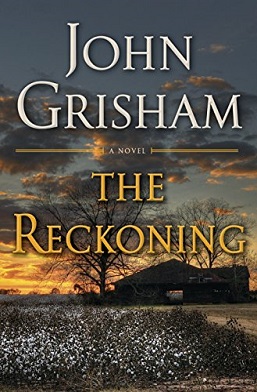
The Reckoning is a best-selling novel by John Grisham. In addition to Grisham's typical legal thriller, the book was also characterized by reviewers as "a murder mystery, a courtroom drama, a family saga, a coming-of-age story," "a period piece", and a war novel.
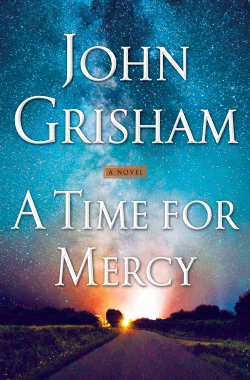
A Time for Mercy, a legal thriller novel by American author John Grisham, is the sequel to A Time to Kill and Sycamore Row. The latest book features the return of the character Jake Brigance, a small-town Mississippi lawyer who takes on difficult cases. The novel was released on October 13, 2020.

